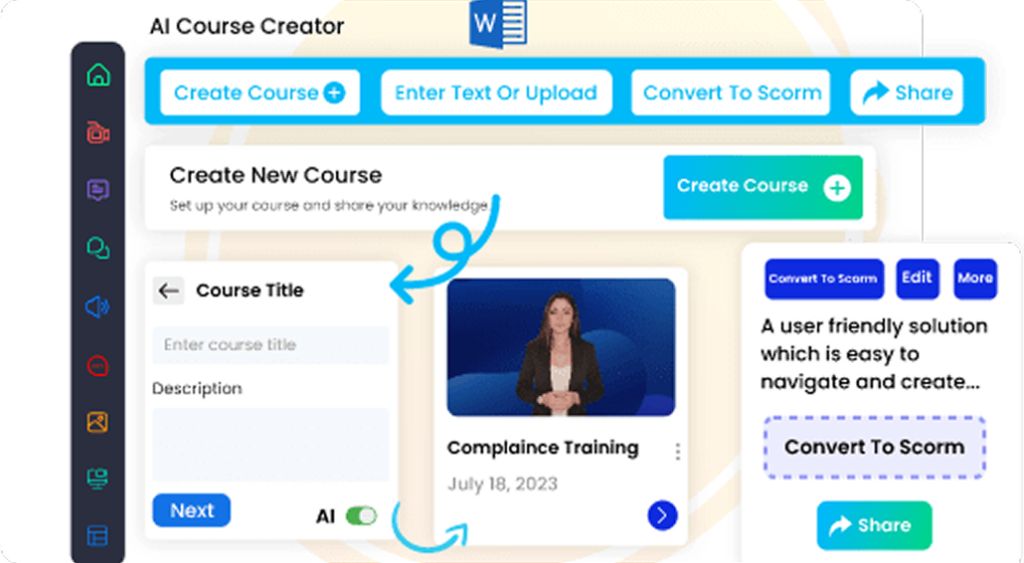Mastering Customer Service Training: The Foundation of Excellent Service
In today’s fiercely competitive business environment, delivering exceptional customer service is paramount to thriving and securing customer loyalty. The foundation of such excellence lies in comprehensive, ongoing training that empowers employees to meet evolving customer expectations. Effective training creates consistent service standards, cultivates soft skills like empathy and active listening, and builds a culture committed to continuous improvement. Organizations that invest in mastering their training strategies lay the groundwork for long-term success, increased customer satisfaction, and sustainable growth. This article explores how building a solid customer service training foundation is crucial, supported by best practices and real-world examples demonstrating its impact on business outcomes.
The Significance of a Strong Customer Service Training Foundation
Establishing Consistency in Service Delivery
Consistency is critical for fostering trust and loyalty. When employees understand core service principles—such as clear communication, active listening, and empathetic engagement—they deliver reliable experiences regardless of individual differences or operational pressures. Studies indicate that consistent service delivery can boost customer retention by up to 25%, emphasizing the strategic importance of standardization through training. A well-structured program ensures alignment across teams, ultimately leading to higher satisfaction scores and repeat business.
Building Customer Trust and Loyalty
Trust is the cornerstone of long-term relationships. Foundational training emphasizes transparency, emotional intelligence, and effective communication—values that foster trust and emotional bonds with customers. According to industry research, 81% of consumers prioritize trust when choosing brands. Employees equipped with these skills can better understand customer needs, handle complaints gracefully, and personalize interactions—factors that significantly enhance loyalty and advocacy.
Enhancing Employee Engagement and Confidence
Thorough onboarding and continuous training increase employee competence and confidence. Confident employees are more likely to engage positively with customers, leading to better service experiences. Engaged staff tend to perform 21% better and are less likely to leave, reducing turnover costs. Investing in foundational skills development demonstrates organizational commitment, motivates employees, and fosters a sense of ownership—further translating into higher quality service.
Aligning Organizational Service Standards
A consistent training approach aligns team members with corporate service standards and brand promises. When everyone understands the desired customer experience, their actions naturally reinforce organizational reputation. Surveys show that organizations with standardized training outperform peers in customer satisfaction, underscoring the importance of clarity in expectations and standards.
Developing a Robust Customer Service Training Framework
Conducting a Needs Analysis
Start by assessing current service capabilities through customer feedback, employee interviews, and performance metrics. This process highlights skill gaps, knowledge deficiencies, and attitude issues that require targeted training. For example, analyzing complaint trends can reveal specific areas for improvement, ensuring training is tailored and impactful.
Defining Core Customer Service Competencies
Identify essential skills such as active listening, empathy, conflict resolution, product knowledge, and emotional intelligence. Clear competency definitions guide curriculum development and set measurable performance expectations, ensuring training is aligned with organizational goals.
Designing Engaging and Interactive Modules
Effective training employs adult learning principles—relevance, interactivity, and experiential learning. Techniques like role-playing, scenario-based exercises, and multimedia modules improve retention and real-world application. Engagement leads to better skill transfer and sustained behavioral change.
Embedding Soft Skills and Emotional Intelligence
Technical skills alone are insufficient. Soft skills—such as empathy, patience, and adaptability—are paramount for positive customer interactions. Training should integrate EI development, using simulations and reflective practices to build these competencies, resulting in improved customer perceptions and loyalty.
Providing Continuous Learning Opportunities
Customer expectations evolve, requiring ongoing skill development. Regular refresher courses, coaching, and microlearning resources keep skills sharp, reinforce standards, and accommodate changing dynamics—fostering a culture of lifelong learning.
Discover how our courses can align with your training goals and drive real results.
Learning Built Around Your Goals.
Schedule A DemoImplementing Effective Training Strategies
Onboarding Programs for New Employees
A comprehensive onboarding process introduces new hires to organizational values, customer service principles, and practical skills. Well-structured programs increase retention and performance, setting a strong foundation for future excellence.
Supervisory and Leadership Development
Managers and supervisors are key to sustaining service standards. Leadership training focuses on coaching, feedback, and motivation, enabling them to support frontline teams effectively and model desired behaviors.
Utilizing Technology and Digital Tools
Leverage LMS platforms, mobile apps, and AI-driven coaching tools to scale training, ensure accessibility, and track progress. Digital solutions support personalized learning pathways and facilitate ongoing assessment.
Monitoring and Measuring Effectiveness
Establish KPIs such as CSAT, NPS, FCR, and employee engagement surveys. Regular review of these metrics helps fine-tune training content and delivery, ensuring continuous improvement and tangible results.
Measuring the Impact of Customer Service Training on Performance
Evaluating training effectiveness is vital. Use multi-level frameworks such as Kirkpatrick’s Model to measure reaction, learning, behavior change, and business results. Combining quantitative metrics and qualitative feedback offers a comprehensive picture of impact.
Long-Term Benefits of a Solid Customer Service Training Foundation
- Increased Customer Satisfaction and Retention: Consistent, high-quality service encourages repeat business and advocacy, leading to sustainable revenue growth.
- Operational Efficiency and Cost Savings: Well-trained employees handle issues faster, reduce errors, and decrease rework, optimizing resources.
- Enhanced Organizational Reputation: A reputation for excellent service differentiates brands and attracts new customers.
- Employee Engagement and Loyalty: Investment in skill development motivates staff, reducing turnover and fostering a positive workplace culture.
Investing in a foundational training approach yields enduring gains, positioning organizations for long-term success in customer-centric markets.
Strategies for Sustained Excellence and Continuous Improvement
Regular Assessment and Feedback
Periodic reviews through customer feedback, performance metrics, and employee surveys identify areas for adjustment. Ensuring cyclical evaluation creates a dynamic training system responsive to change.
Leverage Data and Analytics
Utilize CRM data, interaction analytics, and training platforms to improve insights, tailor content, and anticipate emerging needs. Data-driven decisions enhance training relevance and effectiveness.
Foster a Culture of Learning
Encourage active participation, recognition, and sharing of best practices. Leadership support and openness to innovation sustain momentum in continuous development.
Adapt Technologies and Training Methods
Stay abreast of emerging tools such as AI, VR, AR, and microlearning. Integrate these technologies to keep training fresh, engaging, and aligned with future customer service landscapes.
How CogniSpark AI Enhances Customer Service Training
CogniSpark AI transforms traditional customer service training into a dynamic, interactive learning journey. With its built-in AI Tutor, learners receive real-time, personalized feedback that accelerates skill development in empathy, communication, and problem-solving. The platform’s in-built authoring tool allows organizations to easily customize training modules that reflect brand tone and evolving service standards. Plus, compatible with any LMS, ensuring seamless integration into existing learning ecosystems. Whether you’re onboarding new agents or upskilling experienced staff, CogniSpark AI enables scalable, data-driven training that delivers measurable improvements in CSAT, retention, and employee confidence.
Conclusion
Building and maintaining a strong customer service training foundation is fundamental for delivering enduring excellence. Through strategic design, continuous assessment, technological integration, and cultivating a learning culture, organizations can adapt to changing expectations and secure loyalty. The investment in foundational and ongoing training results in higher customer satisfaction, operational efficiency, and a resilient brand reputation. Embracing a cycle of evaluation and refinement ensures that service standards evolve with customer needs, positioning your organization as a leader in customer experience excellence.
Explore Our eLearning Course Catalog
Access 100+ fully editable, SCORM-compatible courses featuring an integrated AI Tutor and an in-built authoring tool. Seamlessly compatible with any LMS, these courses are designed to elevate your training programs.
Explore Course Catalog






















